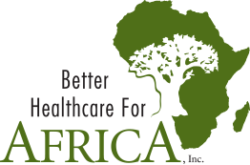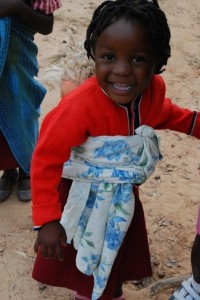Abby Norris Turner, PhD, is a public health researcher in Ohio State University’s Department of Internal Medicine, Division of Infectious Diseases, who has conducted research in Zimbabwe since 1999. Her work focuses on women’s reproductive and sexual health. Her current project involves a counseling intervention related to practices that women undertake such as drying the vagina to increase male pleasure during intercourse. Such “dry sex” may increase the risk of acquisition of HIV as well as another reproductive tract infection called bacterial vaginosis.
Before Abby left for a trip to Zimbabwe in April, Better Healthcare for Africa helped her arrange a meeting in Harare with Dr. Elizabeth Tarira, director of St. Albert’s Mission Hospital, to explore the possibility of doing some work at St. Albert’s. Abby asked Elizabeth to name the most pressing public health problems in the area around St. Albert’s. Here are the leading problems Elizabeth noted:
- Traumatic Injury: These include domestic violence and assault against women and children, as well as agricultural injuries, particularly in children.
- Burns: particularly in children and around the time of the tobacco harvest.
- Cancer, particularly cervical cancer: For information on cancer care in Zimbabwe, see this story.
- Respiratory health: Homes in the area are typically round huts with grass thatch roofs and inadequate ventilation. Stove improvement projects are needed.
- HIV infection: St. Albert’s provides home-based care for HIV-infected and people with other chronic life-limiting illnesses. The hospital has trained more than 1,000 people in villages to be caregivers for HIV-positive people, and a mobile team provides home-based HIV-care services. The most recent HIV seroprevalence survey in the area put the HIV prevalence at about 7 percent in the villages, but Elizabeth thinks the true prevalence is probably higher. She also described the program for double-AIDS-orphans through which Italian families sponsor children by paying their school fees. Elizabeth explained that the sponsorship program enables children who are being cared for by relatives to have some chance at education and advancement. She worried that otherwise these children, particularly girls, have almost no freedom within the foster family and are often abused and neglected.
The leading problem facing the community, Elizabeth said, is sexual violence against women and children. Factors contributing to this problem include
myths about HIV (for example, that having sex with a virgin or young child could cure HIV), polygamy, and widow inheritance. Elizabeth noted that there had been a considerable increase in the last few years in reports of sexual violence, including recently a five-year-old child who had a sexually transmitted infection. She knew of seven convictions of rapists in just the last two years, which was a big success given the difficulties in prosecuting these cases.
To learn how local myths are stalling the treatment of infants with HIV in Malawi, see this IRIN story.
Take care…Darrell


